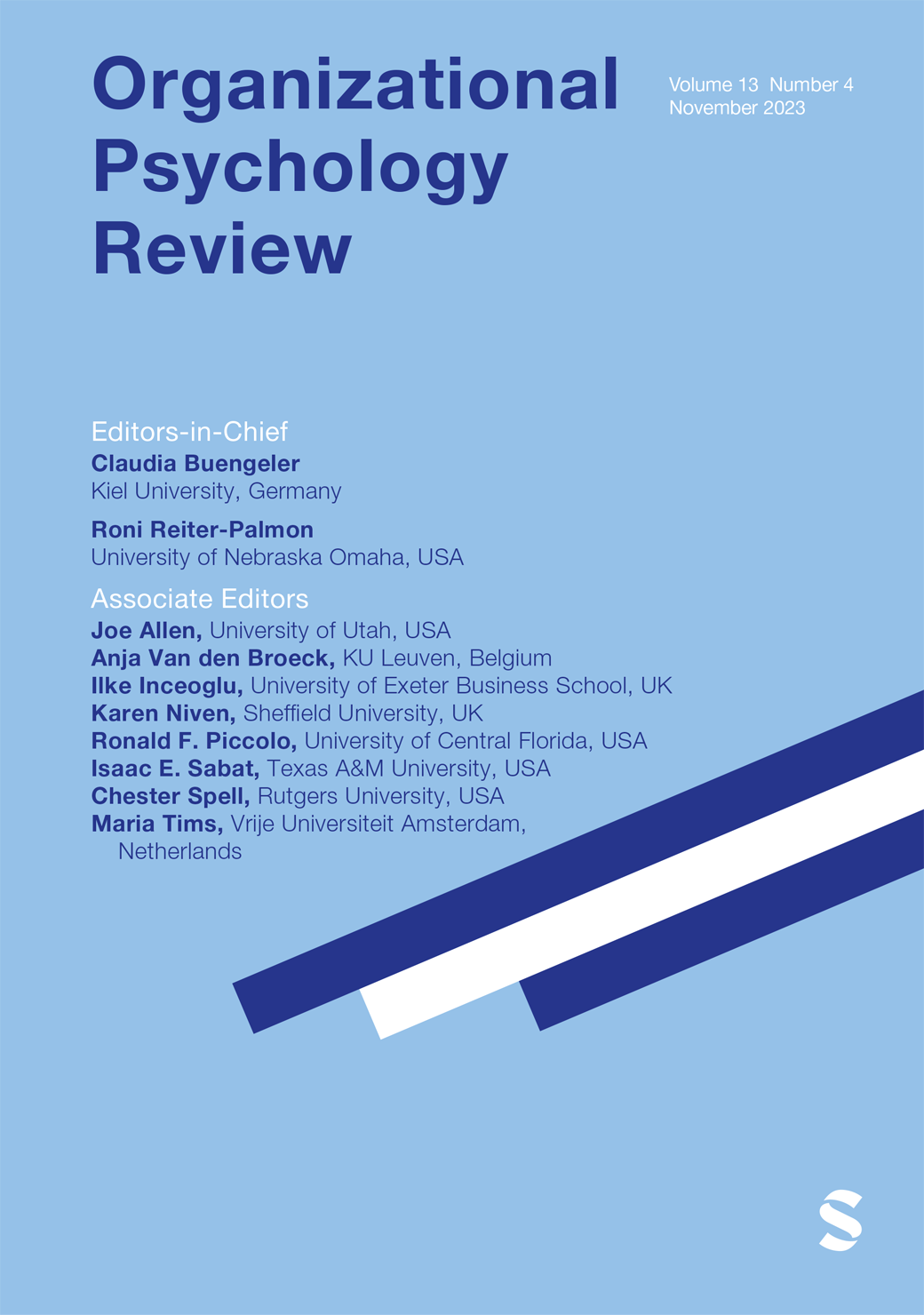Creating theory that is generative for scholarship and practice
IF 7.1
1区 心理学
Q2 MANAGEMENT
引用次数: 0
Abstract
Theorizing in management and organizational psychology that has a generative capacity challenges guiding assumptions, addresses fundamental questions, fosters reconsideration of existing knowledge, and stimulates new approaches to scholarship and/or practice (Gergen, 1994). Its generativity is shown in its use by others. Theorizing that has a generative capacity is crucial for true advances in understanding. While truly generative theorizing is very difficult to accomplish, it is a worthwhile aspiration. In this paper, we discuss foundational characteristics of generative theorizing and processes that interfere with and facilitate its development. Facilitating processes include cultivating both doubt and imagination, involvement in diverse communities, and working with multiple, perhaps contradictory, theoretical directions and assumptions. We provide examples of theorizing that has been generative for both scholarship and practice. Finally, we suggest implications for doctoral education.为学术研究和实践创造有益的理论
管理和组织心理学的理论化具有生成能力,挑战指导性假设,解决基本问题,促进对现有知识的重新思考,并激发对学术和/或实践的新方法(Gergen, 1994)。它的创造性体现在别人对它的使用上。将具有生成能力的理论化对于理解的真正进步至关重要。虽然真正的生成理论很难实现,但这是一个值得追求的目标。在本文中,我们讨论了生成理论的基本特征和干扰和促进其发展的过程。促进过程包括培养怀疑和想象力,参与不同的社区,以及使用多种可能相互矛盾的理论方向和假设。我们提供了理论的例子,已经产生了学术和实践。最后,我们提出了对博士教育的启示。
本文章由计算机程序翻译,如有差异,请以英文原文为准。
求助全文
约1分钟内获得全文
求助全文
来源期刊

Organizational Psychology Review
Multiple-
CiteScore
10.00
自引率
1.60%
发文量
25
期刊介绍:
Organizational Psychology Review is a quarterly, peer-reviewed scholarly journal published by SAGE in partnership with the European Association of Work and Organizational Psychology. Organizational Psychology Review’s unique aim is to publish original conceptual work and meta-analyses in the field of organizational psychology (broadly defined to include applied psychology, industrial psychology, occupational psychology, organizational behavior, personnel psychology, and work psychology).Articles accepted for publication in Organizational Psychology Review will have the potential to have a major impact on research and practice in organizational psychology. They will offer analyses worth citing, worth following up on in primary research, and worth considering as a basis for applied managerial practice. As such, these should be contributions that move beyond straight forward reviews of the existing literature by developing new theory and insights. At the same time, however, they should be well-grounded in the state of the art and the empirical knowledge base, providing a good mix of a firm empirical and theoretical basis and exciting new ideas.
 求助内容:
求助内容: 应助结果提醒方式:
应助结果提醒方式:


